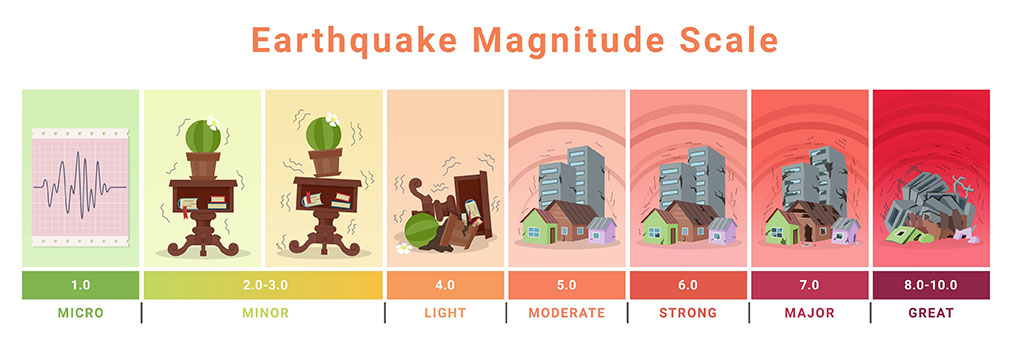

In science, magnitude is a measure of the size or amount of something. It is often used to compare different things, such as the size of earthquakes or the brightness of stars.
Magnitude is usually measured on a scale, such as the Richter scale for earthquakes or the apparent magnitude scale for stars. The Richter scale measures the amount of energy released by an earthquake, while the apparent magnitude scale measures the brightness of a star as seen from Earth.
The higher the magnitude, the larger or brighter the thing is. For example, an earthquake with a magnitude of 7 is much larger than an earthquake with a magnitude of 5. And a star with an apparent magnitude of 1 is much brighter than a star with an apparent magnitude of 6.
The magnitude of the problem is still unknown.

Noun: The size or extent of something. For example, you could say "the magnitude of the earthquake" or "the magnitude of the problem".
Adjective: Describing something that is large or significant. For example, you could say "a magnitude event" or "a magnitude problem".
The word "magnitude" comes from the Latin word "magnitūdo", which means "greatness".
The word "magnitude" was first used in English in the 14th century. It was originally used to describe the size or extent of something, but it soon came to be used in a more figurative sense to describe anything that was large or significant.
What does magnitude mean?